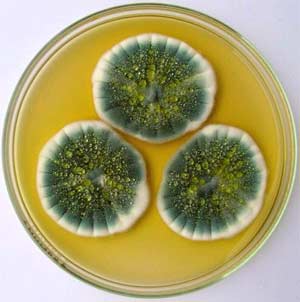Penicillium chrysogenum (PEN) is a type of mold used in pharmaceutical production. Its dry fungal hyphae serve as waste in penicillin production and are also effective in controlling fungal diseases in crops.
 |
Penicillium chrysogenum is a type of mold |
To explore its impact on cotton plants, Mr. Hezhong Dong and his colleagues from the Cotton Research Center at the Shandong Academy of Agricultural Sciences in China conducted field applications, demonstrating that “the dry fungal hyphae of Penicillium chrysogenum (PEN) can protect cotton plants from wilting diseases and increase yields.” Their findings were published in a recent issue of the Plant Protection Journal.
Cotton is a crucial cash crop globally, with over 4 million hectares cultivated annually in China. Cotton plants are often affected by a range of fungal pathogens, significantly reducing yields, with the most impactful diseases being those caused by Fusarium and Verticillium fungi.
In their experiments, the researchers improved the fields with DM fungi, planted cotton, and monitored the levels of infection from Fusarium and Verticillium-induced wilting diseases from 2001 to 2004.
Results from the monitoring period of 2001-2002 indicated that a relatively high dose of DM was effective in protecting crops from pathogens. However, the results from 2003-2004 showed that while DM could still manage the diseases, its effectiveness depended on the application rate. Furthermore, fiber yields increased, a result attributed to the control of both diseases and the nutritional impact of DM.




















































